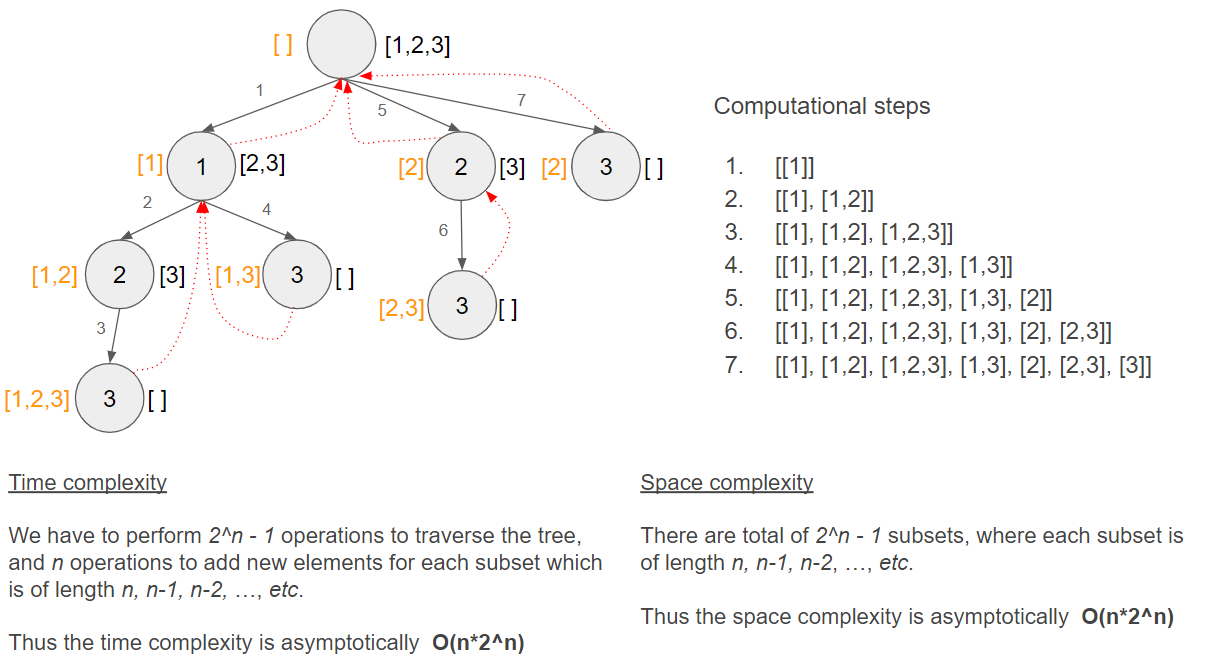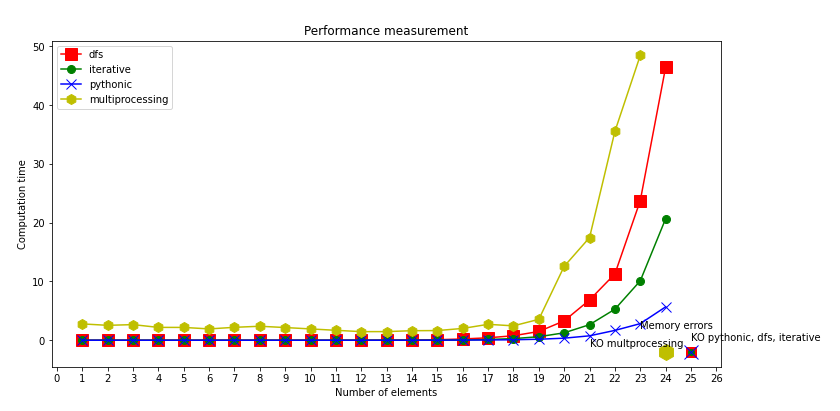Suppose you're given a file with a single string of comma separated numbers like the following
$ cat input
123,456,789
Your program must print to STDOUT the powerset of the given set, like follows (actual order is not relevant)
$ cat input | <your program> > output
$ cat output
123
456
789
123,456
123,789
456,789
123,456,789
Your solution must print to STDOUT and any extraneous output will be considered an error (but you may print to STDERR at your convenience). Your program will be tested against inputs of growing size, the more they can take, the better!
The solution must contain documentation explaining time and space complexity of your implementation.
You should use only stuff other than the standard library of your language of choice, any additional requirement should be documented and motivated. Java, Python, Scala or Rust are preferred.
The code has been written in Python 3.7, and no external libraries or dependencies were used for this solution.
$ $(echo 123,456,789) | powerset_generator.py > output
$ cat output
123
456
789
123,456
123,789
456,789
123,456,789
- Accepts and process only the input composed of, comma separated, strings of elements.
- Raise an exception and gracefully exit the code if input does not match the first condition.
- The results are printed to STDOUT.
- The order of the result does not matter.
- The void set is ignored.
for each elem in elements:
i is position(elem, elements)
recur([elem], i)
recur(res, pos):
result.append(res)
for each elem in elements:
i is position(elem, elements)
res = res.append(elem)
recur(res, i)
- Space complexity is O(n*2^n)
- Time complexity is O(n*2^n)
The benchmark was performed with the following setup:
- CPU: Intel Core i5-6300 @ 2.40 GHz, 2 Cores, 4 Logical Processors
- RAM: 8GB
- OS: Microsoft Windows 10 Enterprise Build 17763
The best performing algorithm is powerset_pythonic. Note that all algorithms fail with MemoryError from length
subset of 25. The error is caused by the inherent space complexity of the algorithm which is very demanding in term of
space allocation.
DO WHAT THE FUCK YOU WANT TO PUBLIC LICENSE
Version 2, December 2004
Copyright (C) 2004 Sam Hocevar <sam@hocevar.net>
Everyone is permitted to copy and distribute verbatim or modified
copies of this license document, and changing it is allowed as long
as the name is changed.
DO WHAT THE FUCK YOU WANT TO PUBLIC LICENSE
TERMS AND CONDITIONS FOR COPYING, DISTRIBUTION AND MODIFICATION
0. You just DO WHAT THE FUCK YOU WANT TO.
[1] https://en.wikipedia.org/wiki/Power_set
[2] https://rosettacode.org/wiki/Power_set
[3] https://cs.stackexchange.com/questions/121230/explanation-of-on2n-time-complexity-for-powerset-generation
[4] https://www.geeksforgeeks.org/power-set/
[5] https://docs.python.org/3/library/itertools.html#itertools.combinations
[6] https://docs.python.org/3/library/itertools.html#itertools-recipes
[7] https://stackoverflow.com/questions/24365954/how-to-generate-a-power-set-of-a-given-set

